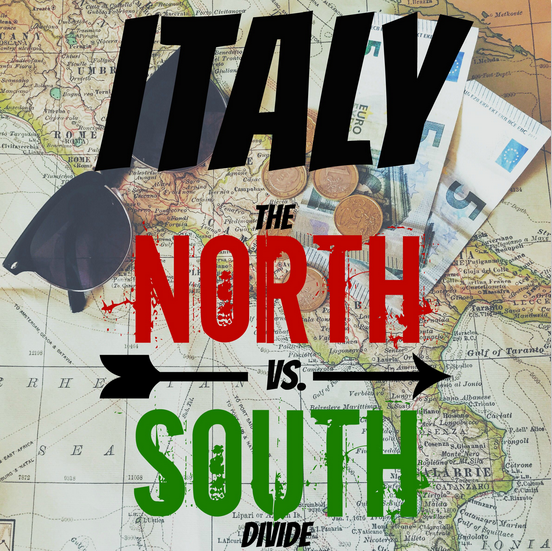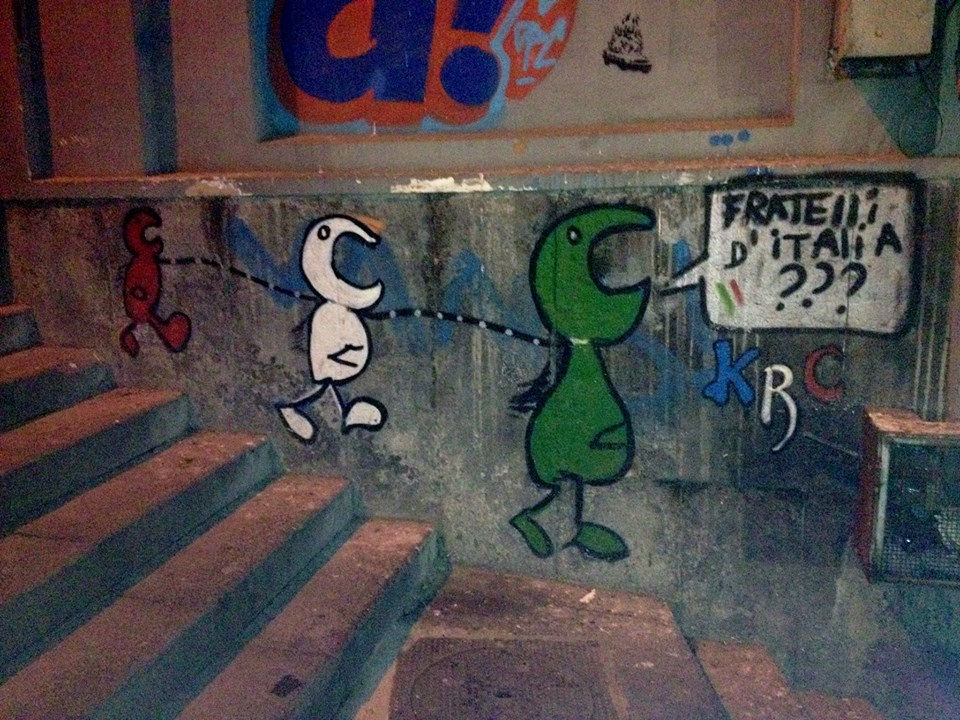Italy: the North vs. South Divide
- thereseholland
- Jul 17, 2015
- 4 min read

A lot of people seem to talk about Italy like it’s one organized and unified country. Okay, maybe that’s because it technically is, but if we’re being real here, there’s a huge divide between the North and the South in Italy.
After being in Italy for a cumulative four months now, I am kinda sick of these generalizations, so let me spell a few things out for you…
Southern Italy shares more with Spain or Greece than it does with Northern Italy.
What? Yeah, I am going to go as far as to say that there are cultural differences that vast between the regions in Italy.
Northern Italy borders Switzerland, Austria, and France, so food and culture mirrors more similarly to those countries. Go far enough North to the region of Tyrol, and don’t be surprised to find lederhosen in Italy. Yeah, lederhosen is a thing in Italy! See, this is why we needed to have this talk.
The South is strongly influenced by the sea that surrounds it. There is a Mediterranean culture in the South, not unlike the vibe you might get in Greece or parts of Spain. I’ve heard Greeks call Southerners their brothers, and I know that some hand gestures in the South carry the same meaning in parts of Spain. I typically hate to generalise—but at least its' a positive generalisation—I also think people in Mediterranean countries are nicer. Warmer climates, warmer people, right?
So if you dig cooler temperatures and Italian blondies, head to a Northern city like Venice or Milan. If you can take the heat and definitely want to be near the kitchen, head to the sun-soaked South, where pizza is king.
On that note...

Just because you’re in Italy, doesn’t mean the pizza will be good.
The best food in the North or South generally depends on what grows in the microclimate of that region. The hot, sea-surrounded South is a great place for seafood, and it's also home to the more stereotypical Italian food you’re probably thinking of. Don’t be surprised if pizza in Milan sucks. Dishes like pizza and lasagna are Southern Italian dishes. The yummy tomatoes and savory Mozzarella favor the heat, and are best in the South. To be fair, also don't be surprised if the polenta in Naples sucks. It all depends what is more typical for that area.
Speaking of mozzarella, I don’t think we can have a discussion on Italian food without mentioning cheese. While authentic mozzarella comes from Campania (region where Naples is), there are other great cheeses in any region in Italy. Did you know parmesan cheese comes from Parma, in the North, for example?
PROTIP: When traveling to the South, you might see the cheese on your pizza is Mozzarella DOP. That’s because traditional Italian methods of mozzarella production are protected by law to use milk of the water buffalo. The government agency dedicated to this important and delicious practice is called Mozzarella di Bufala Campana DOP.
So now, what about communication?
Language is another big cultural difference between Northern and Southern Italy, so...

Let’s talk accents, slang, and dialects.
So, everyone in Italy speaks Italian (duh) so there are some Essential Italian Phrases to master before you travel.
The accent can vary a lot, with people in the North pronouncing mi piace (I like) with a soft, “me pee-a-say” versus a southerner’s “me pee-ah-schah”. Both of these can be compared to the general Italian: “me pee-ah-che”. This is just an example, and there are many more examples to choose from. However, the accent isn’t where you’ll get confused, but rather, with slang and dialects.
Why so different?
Before the unification of Italy in the 19th century, there were separate states each speaking a different language. In an effort to unify the country both politically and culturally, an Italian language was formed and taught in schools as the new language of the new country. Yep! Italian is relatively unique in that way, as most languages develop naturally and change over time, and aren’t kind of assembled and packaged for consumption the way Italian sort of was. The government decided everyone would speak this new language, and so it was spoken, and still is!
Despite this effort to unify, many people still speak their local language or dialect, plus some additional slang words. I’ll spell more of those out in a future post, but for now just know how different the languages can be in each region. For example, I’ve been told that someone’s grandmother from provincial Northern areas would legitimately not understand the language of someone from Naples. I say grandmother only because it is becoming less and less common for people to speak these regional languages in every day life, but there are plenty of young people who do.
More than language divides these regions though.

Street art in Naples. Translation: "Brothers of Italy?"
Italians don't necessarily feel strong ties to each other.
There is a tension between the North and the South that you can practically cut with a knife. Someone in the North could genuinely dislike someone in the South (or vice versa), just because of where the other is from. In fact, there is even The Lega Norda (Northern League) who wants to separate from the rest of Italy and become a new country. The reasons for this are long and steeped in a history that I am not qualified or knowledgeable enough to recount for you. To summarise, there’s strong tensions between the two regions, and the blame varies depending on who you ask and where that person is from. A Northerner would say a Southerner is taking their money and resources, whereas a Southerner would say the South needs the resources because of problems caused by the North.
There have been a lot of problems since unification, politically and culturally. Unification can be seen in media outlets, government, and sort of with language, but it pretty much stops there. In Italy, when it comes to unification, everyone feels pretty disappointed, and no one feels truly unified.

For you, the visitor, this means that you can see a wealth of cultural differences when traveling in only one country. You can experience entirely different cuisines, weather, and fashion by only traveling a few hours by train. Travel to Italy means something different and new in each city or region you visit, so there’s loads to discover.
For those of us living here though, there’s still an awkward silence at the dinner table, and we’re all eating a different dish.
























Comments